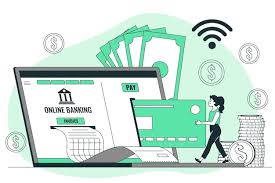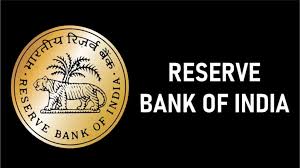The Rise of Online Banking:

Earlier, banking involved physical trips, long queues, and a lot of paperwork. However, with the rise of the internet and smartphones, everything has changed dramatically. Today, online platforms allow users to open bank accounts, invest, apply for loans, and even receive financial advice. Consequently, safe online banking has become an essential tool, enabling people to transfer money with just a few clicks. Moreover, users can now check their balances, manage personal finances, and pay utility bills directly from their smartphones. Overall, the digital transformation of banking has significantly simplified our lives, especially in today’s fast-paced digital era.
What is Secure Online Banking:
Secure online banking simply means using internet-based banking services in a way that keeps your personal and financial information safe from fraud, theft, or any unauthorized access. Instead of visiting a bank branch, you can log into your bank’s official website or mobile app to check your balance, transfer money, pay bills, or use other banking services all from the comfort of your home.
To help keep things safe, banks use strong security tools like two-factor authentication (2FA), data encryption, firewalls, and automatic logout features. At the same time, users should also take precautions like creating strong passwords, avoiding public Wi-Fi while banking, and regularly checking their account activity for anything unusual.
Because of these safety features, secure online banking lets people manage their money with more confidence and ease. As digital banking continues to grow, it’s important to stay updated on online threats and follow simple safety tips. When done right, online banking can be just as safe or even safer than going to the bank in person.
Key Features of Online Banking Platforms:

it’s important to recognize the key features that modern platforms provide. The below features make banking more convenient, but users must remember that these systems are not immune to fraud.
- 24/7 Access: Users can perform transactions anytime, anywhere.
- Real-Time Alerts: Most platforms provide SMS or app notifications for every transaction.
- Fund Transfers: Money can be sent instantly using NEFT, RTGS, IMPS, or UPI.
- Bill Payments: Utility, insurance, and mobile bills can be paid directly from accounts.
- Account Management: Statements, balances, and recent transactions are available in real time.
What is UPI – Security of UPI Payments- Benefits and Tips for Safe UPI Usage:
Unified Payments Interface (UPI) is a real-time payment system created by the National Payments Corporation of India (NPCI). In simple terms, it allows you to send or receive money instantly between bank accounts using your mobile phone. Once you link your bank account to a UPI app, you can use easy IDs like your mobile number or a virtual payment address (VPA) to make quick transactions—anytime, anywhere, 24/7.
When it comes to security, UPI payments are protected with two-factor authentication and encrypted transactions. Before completing a payment, you’ll be asked to enter a UPI PIN, which ensures that only you can authorize the transfer. Even though the system is secure, it’s still very important not to share your UPI PIN with anyone. Also, be cautious of fake links or calls asking for your details. Stick to trusted apps like BHIM, PhonePe, or Google Pay for safe usage.
What makes UPI great is its speed and simplicity. Unlike traditional methods, you don’t need to enter long account numbers or IFSC codes. UPI works across most banks, apps, and QR codes, making it super convenient. Since there are usually no extra charges, it’s perfect for everyday use—like paying bills, splitting expenses with friends, or shopping online. Overall, UPI is helping India move towards a more digital and inclusive financial system.
To stay safe while using UPI, always download apps from official app stores like Google Play or the Apple App Store. Make sure your apps are updated regularly. Additionally, set a strong screen lock on your phone, and never share your UPI PIN or OTP with anyone. Before sending money, double-check the recipient’s name and details. Lastly, turn on transaction alerts and report anything suspicious to your bank right away.
Common Threats to Online Banking Security:
The users must first understand the threats that challenge secure online banking.Identifying these dangers is the first step toward ensuring secure online banking in daily life:
- Phishing Scams: Fraudsters often impersonate banks and send emails or messages asking for login credentials.
- Malware Attacks: Viruses or spyware can infect your devices and steal sensitive banking data.
- Public Wi-Fi Risks: Using unsecured Wi-Fi for banking makes your data vulnerable to interception.
- Weak Passwords: Easy-to-guess passwords are the first doorway hackers try to exploit.
- Fake Apps or Websites: Impersonated apps can mimic real banks and steal information.
How to maintain a Secure and safe online Banking:
The steps you can take to maintain secure online banking:
1. Use Strong and Unique Passwords
Your banking password should be a combination of letters (both upper and lower case), numbers, and symbols. Avoid using obvious passwords like your birthday or “123456.” For added secure online banking, change your password regularly and don’t reuse it for other accounts.
2. Enable Two-Factor Authentication (2FA)
Whenever possible, enable 2FA. This adds an extra layer of protection, ensuring that even if your password is compromised, unauthorized access remains difficult.
3. Install Trusted Security Software
Antivirus and anti-malware software are crucial tools for secure online banking. Make sure these programs are updated regularly and avoid downloading files or attachments from unknown sources.
4. Avoid Public Wi-Fi for Banking Transactions
Using public Wi-Fi for online banking increases the risk of data interception. Instead, always use a secure, private internet connection.
5. Update Your Devices Regularly
Software updates often include security patches. Outdated apps or systems can expose you to vulnerabilities. For better secure online banking, keep your phone and computer up to date.
The Role of Banks in Ensuring Security:
Individuals cooperation is still essential. After all, secure online banking is a shared responsibility, Banks are constantly upgrading their systems to promote secure online banking..These include:
- End-to-End Encryption: Ensuring that data transferred between you and the bank is safe.
- Fraud Detection Systems: Advanced algorithms monitor unusual activity and raise alerts.
- Biometric Authentication: Some banks offer fingerprint or facial recognition for logins.
- Time-Out Sessions: Automatically logging out inactive users to prevent misuse.
Safe Mobile Banking Habits by Educating Elderly and New Users:

Most users now access banking services through mobile apps. To ensure secure online banking on your phone, you must Download apps only from official app stores, Avoid clicking pop-up ads within apps, Do not root or jailbreak your phone, Enable biometric locks like fingerprint or facial recognition, Clear cache and history regularly. Practicing these habits consistently can significantly reduce the risk of cyber theft. And senior citizens or first-time users are most vulnerable. It is crucial to educate them about secure online banking. we can assist them by Set up accounts together and explain every step, Install a reliable antivirus program on their devices, Encourage them to avoid clicking suspicious links, Show them how to verify URLs and app sources and these guidance can empower these users to bank confidently and securely.
Real-Life Tips from Everyday Users:
Many people enhance their secure online banking experience through simple habits like Set daily limits on online transfers, Turn on transaction alerts via SMS and email, Avoid saving passwords in browsers, Log out after every session, Monitor bank statements regularly for unfamiliar transactions. Though these steps might seem small, they go a long way in ensuring your digital safety.
What to Do If You Suspect Fraud:
If You Suspect Fraud, mistakes can happen then immediately change your password and login details, Contact your bank’s customer service to block access, Inform your bank to monitor suspicious activity, File a cybercrime report via India’s cybercrime portal or local authorities, Check your credit report for irregularities. Quick action can help contain the damage and protect your financial well-being
RBI’s Advice on Secure Online Banking:

The Reserve Bank of India (RBI) consistently emphasizes the importance of secure online banking to protect customers from the growing number of cyber threats. To begin with, RBI advises users to never share confidential information such as OTPs, PINs, or passwords with anyone—even if the person claims to be a bank official. In addition, customers are urged to regularly update their passwords and use strong, unique credentials for each online banking platform.
Moreover, RBI recommends enabling two-factor authentication (2FA) and setting up transaction alerts to keep track of account activity. It is also important to note that users should avoid carrying out financial transactions over public Wi-Fi or unsecured networks. Before logging in, one should always verify the authenticity of banking websites and apps.
In case any suspicious activity is noticed, the RBI advises immediate action by reporting it to the bank’s helpline and filing a complaint on the National Cyber Crime Reporting Portal. By following these safety measures, users can significantly reduce the risk of fraud and enjoy a safer and more secure online banking experience.
A Final Thoughts: Navigating with Confidence:
Online banking isn’t just a convenience anymore; it has become a part of daily life. As more and more people turn to digital tools to manage their money, it’s important to understand how to stay safe while doing so. Whether you’re paying your bills, transferring funds, or just checking your account balance, security should always come first.
By being aware, building good habits, and keeping yourself updated, you can easily and safely navigate the digital world of banking. In the end, secure online banking isn’t just about protecting your money — it’s also about giving yourself peace of mind. So let it be your trusted path to financial freedom, without any unnecessary worries.
Here are some outbound links from trusted sources related to secure online banking:
RBI Guidelines and Cybersecurity Advice:
- Reserve Bank of India – Cyber Security Framework for Banks
https://www.rbi.org.in/scripts/NotificationUser.aspx?Id=10435 - RBI’s Do’s and Don’ts for Safe Digital Banking
https://www.rbi.org.in/Scripts/SafeBanking.aspx
National Cyber Crime Reporting Portal (Government of India)
- Report Cyber Fraud or Phishing
https://www.cybercrime.gov.in
